Intro
Discover if appendicitis can go away on its own. Learn about symptoms, treatment options, and recovery for acute appendicitis, including perforated appendix and appendix pain management.
Appendicitis is a serious medical condition that occurs when the appendix, a small organ attached to the large intestine, becomes inflamed. This inflammation can be caused by a blockage or obstruction in the appendix, which can lead to severe abdominal pain, nausea, vomiting, and fever. The question of whether appendicitis can go away on its own is a common one, and it's essential to understand the risks and consequences of not seeking medical attention.
The appendix is a small, finger-like pouch that is attached to the large intestine. Its function is not fully understood, but it's believed to play a role in the development of the gut microbiome during childhood. Appendicitis occurs when the appendix becomes blocked, which can be caused by a variety of factors, including a buildup of feces, a foreign object, or a tumor. If left untreated, the blockage can cause the appendix to rupture, leading to a life-threatening infection.
In some cases, appendicitis may seem to go away on its own, but this is often a false sense of security. The symptoms of appendicitis can come and go, and it's possible for the inflammation to subside temporarily. However, this does not mean that the underlying condition has resolved. In fact, if left untreated, appendicitis can lead to serious complications, including perforation of the appendix, abscess formation, and peritonitis.
Understanding Appendicitis
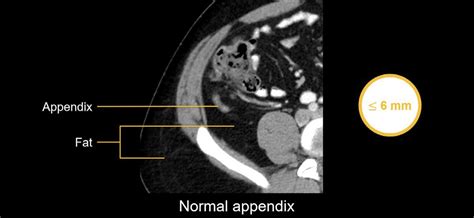
Appendicitis is a medical emergency that requires prompt attention. The symptoms of appendicitis can vary, but they often include severe abdominal pain, nausea, vomiting, fever, and loss of appetite. The pain typically starts near the navel and then moves to the lower right abdomen. If you're experiencing any of these symptoms, it's essential to seek medical attention right away.
Causes of Appendicitis
The exact cause of appendicitis is not fully understood, but it's believed to be related to a blockage or obstruction in the appendix. This blockage can be caused by a variety of factors, including:- A buildup of feces or other material in the appendix
- A foreign object, such as a swallowed item
- A tumor or cyst in the appendix
- Infection or inflammation in the appendix
Symptoms of Appendicitis
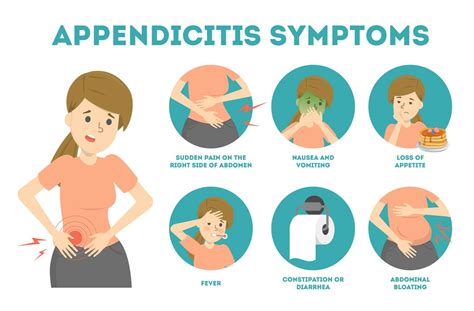
The symptoms of appendicitis can vary, but they often include:
- Severe abdominal pain that starts near the navel and then moves to the lower right abdomen
- Nausea and vomiting
- Fever and chills
- Loss of appetite
- Abdominal tenderness and guarding (muscle tension)
- Rebound tenderness (pain that worsens when pressure is applied to the abdomen)
Diagnosing Appendicitis
Diagnosing appendicitis can be challenging, as the symptoms can be similar to those of other conditions. A doctor may use a variety of tests to diagnose appendicitis, including:- Physical exam: A doctor will perform a physical exam to check for abdominal tenderness and guarding.
- Imaging tests: Imaging tests, such as a CT scan or ultrasound, may be used to confirm the diagnosis.
- Blood tests: Blood tests may be used to check for signs of infection or inflammation.
- Urine tests: Urine tests may be used to rule out other conditions, such as a urinary tract infection.
Treatment Options for Appendicitis
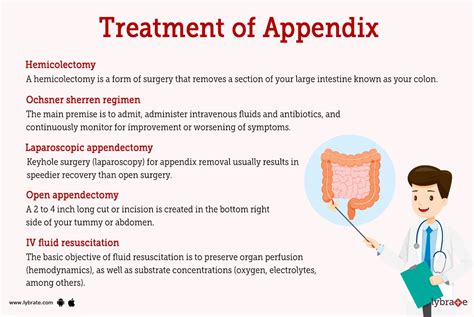
The treatment for appendicitis typically involves surgery to remove the inflamed appendix. This can be done through an open surgery or a laparoscopic surgery. In some cases, antibiotics may be prescribed to treat any underlying infection.
- Open surgery: This involves making a large incision in the abdomen to access the appendix.
- Laparoscopic surgery: This involves making several small incisions in the abdomen and using a laparoscope (a thin, lighted tube with a camera) to visualize the appendix.
- Antibiotics: Antibiotics may be prescribed to treat any underlying infection.
Complications of Untreated Appendicitis
If left untreated, appendicitis can lead to serious complications, including:- Perforation of the appendix: This can lead to a life-threatening infection.
- Abscess formation: This can lead to a collection of pus in the abdomen.
- Peritonitis: This is a life-threatening infection of the lining of the abdomen.
Preventing Appendicitis
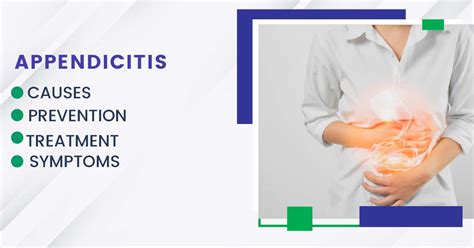
While it's not possible to completely prevent appendicitis, there are some steps you can take to reduce your risk:
- Eat a healthy diet: A diet rich in fiber can help to prevent constipation, which can reduce the risk of appendicitis.
- Stay hydrated: Drinking plenty of water can help to prevent dehydration, which can reduce the risk of appendicitis.
- Avoid certain foods: Some foods, such as seeds and nuts, can increase the risk of appendicitis.
Risk Factors for Appendicitis
There are several risk factors that can increase the likelihood of developing appendicitis, including:- Age: Appendicitis is most common in people between the ages of 10 and 30.
- Family history: If you have a family history of appendicitis, you may be more likely to develop the condition.
- Obesity: Obesity can increase the risk of appendicitis.
Living with Appendicitis
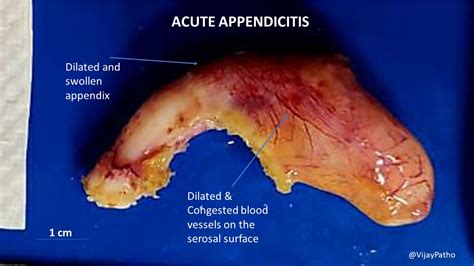
If you've been diagnosed with appendicitis, it's essential to follow your doctor's instructions and take steps to manage your symptoms. This may include:
- Resting and avoiding strenuous activities
- Taking pain medication as directed
- Eating a healthy diet
- Staying hydrated
Recovering from Appendicitis Surgery
If you've had surgery to remove your appendix, it's essential to follow your doctor's instructions for recovery. This may include:- Resting and avoiding strenuous activities
- Taking pain medication as directed
- Eating a healthy diet
- Staying hydrated
Conclusion and Next Steps
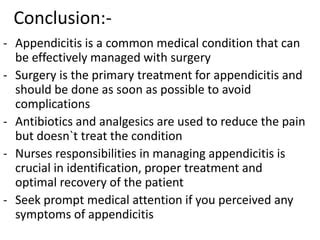
In conclusion, appendicitis is a serious medical condition that requires prompt attention. While it may seem to go away on its own, this is often a false sense of security. If you're experiencing symptoms of appendicitis, it's essential to seek medical attention right away. By understanding the causes, symptoms, and treatment options for appendicitis, you can take steps to manage your symptoms and prevent complications.
Can appendicitis go away on its own?
+While appendicitis may seem to go away on its own, this is often a false sense of security. If left untreated, appendicitis can lead to serious complications, including perforation of the appendix, abscess formation, and peritonitis.
What are the symptoms of appendicitis?
+The symptoms of appendicitis can vary, but they often include severe abdominal pain, nausea, vomiting, fever, and loss of appetite. The pain typically starts near the navel and then moves to the lower right abdomen.
How is appendicitis diagnosed?
+Diagnosing appendicitis can be challenging, as the symptoms can be similar to those of other conditions. A doctor may use a variety of tests to diagnose appendicitis, including physical exams, imaging tests, blood tests, and urine tests.
What are the treatment options for appendicitis?
+The treatment for appendicitis typically involves surgery to remove the inflamed appendix. This can be done through an open surgery or a laparoscopic surgery. In some cases, antibiotics may be prescribed to treat any underlying infection.
Can appendicitis be prevented?
+While it's not possible to completely prevent appendicitis, there are some steps you can take to reduce your risk. Eating a healthy diet, staying hydrated, and avoiding certain foods can help to reduce the risk of appendicitis.
We hope this article has provided you with a comprehensive understanding of appendicitis. If you have any further questions or concerns, please don't hesitate to reach out to us. Share this article with your friends and family to help raise awareness about the importance of seeking medical attention for appendicitis. Take the first step towards protecting your health and wellbeing by learning more about appendicitis and its treatment options.
